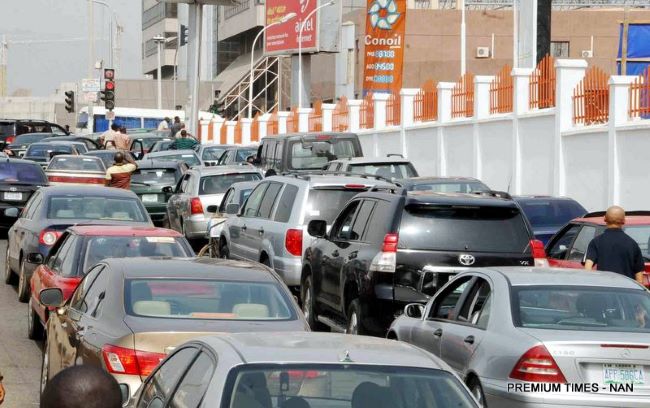The Nigerian National Petroleum Company Limited (NNPCL) has admitted that the company’s significant debt to petrol suppliers is a major factor contributing to the persistent petrol queues across the country. This acknowledgment comes amidst growing concerns over fuel scarcity, which has plagued Nigeria since the beginning of 2024.
Reports have indicated that the NNPCL owes petrol suppliers approximately $6 billion, a debt burden that has severely impacted the company’s ability to maintain a steady supply of fuel. This financial shortfall has led to prolonged petrol shortages, further exacerbating the already challenging situation for Nigerian consumers.
In the past, the NNPCL attributed the fuel supply disruptions to various factors, including logistics challenges and flooding. However, in a statement released on Sunday, NNPCL spokesperson Olufemi Soneye conceded that the company’s mounting debt is a significant contributor to the ongoing crisis.
“This financial strain has placed considerable pressure on the company and poses a threat to the sustainability of fuel supply,” Soneye stated. He added that the company is facing substantial challenges in meeting its obligations to suppliers, which in turn affects the availability of petrol at filling stations across the nation.
Despite these challenges, the NNPCL reaffirmed its commitment to fulfilling its responsibilities under the Petroleum Industry Act (PIA). “In line with the Petroleum Industry Act (PIA), NNPC Ltd remains dedicated to its role as the supplier of last resort, ensuring national energy security,” Soneye emphasized.
To address the issue, the NNPCL is reportedly engaging in active discussions with relevant government agencies and stakeholders. The goal is to develop strategies that will stabilize the fuel supply chain and alleviate the suffering caused by the shortages.
“We are actively collaborating with relevant government agencies and other stakeholders to maintain a consistent supply of petroleum products nationwide,” Soneye said. He also highlighted the importance of restoring confidence in the market, assuring Nigerians that the company is doing everything within its power to resolve the crisis.
The NNPCL’s admission marks a significant shift from its previous stance, where external factors were predominantly blamed for the fuel shortages. As the situation continues to unfold, there is growing public pressure on the company and the government to find lasting solutions to the perennial issue of fuel scarcity in Nigeria.
With the economy already strained by inflation and other challenges, the ongoing fuel crisis has further compounded the difficulties faced by businesses and individuals alike. The NNPCL’s acknowledgment of its financial woes underscores the urgent need for structural reforms and financial stability within the oil and gas sector to prevent future disruptions in fuel supply.


